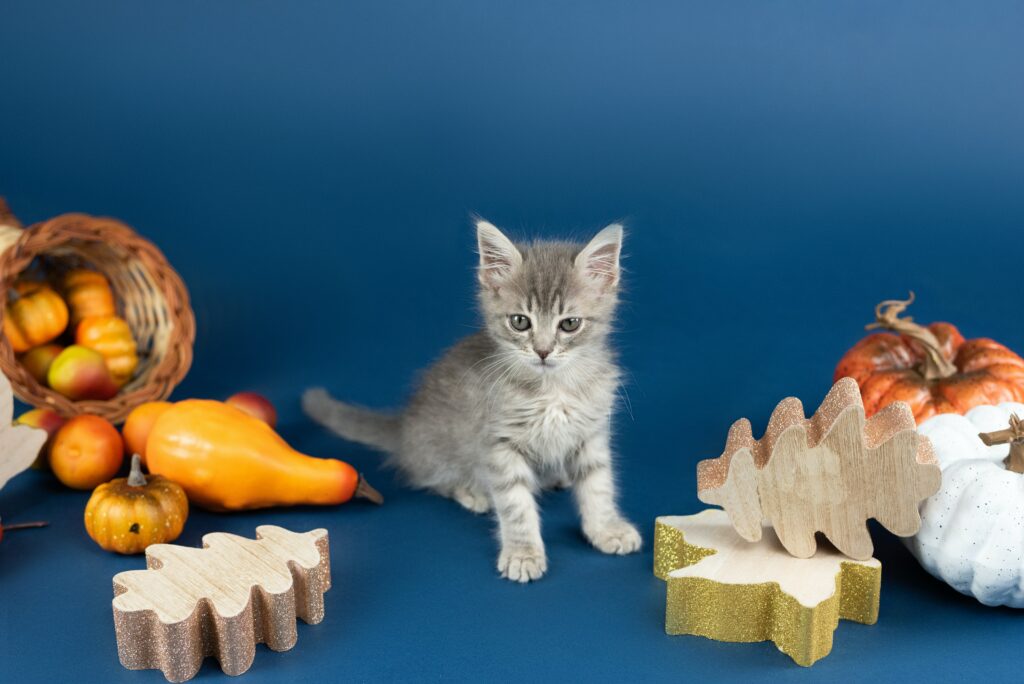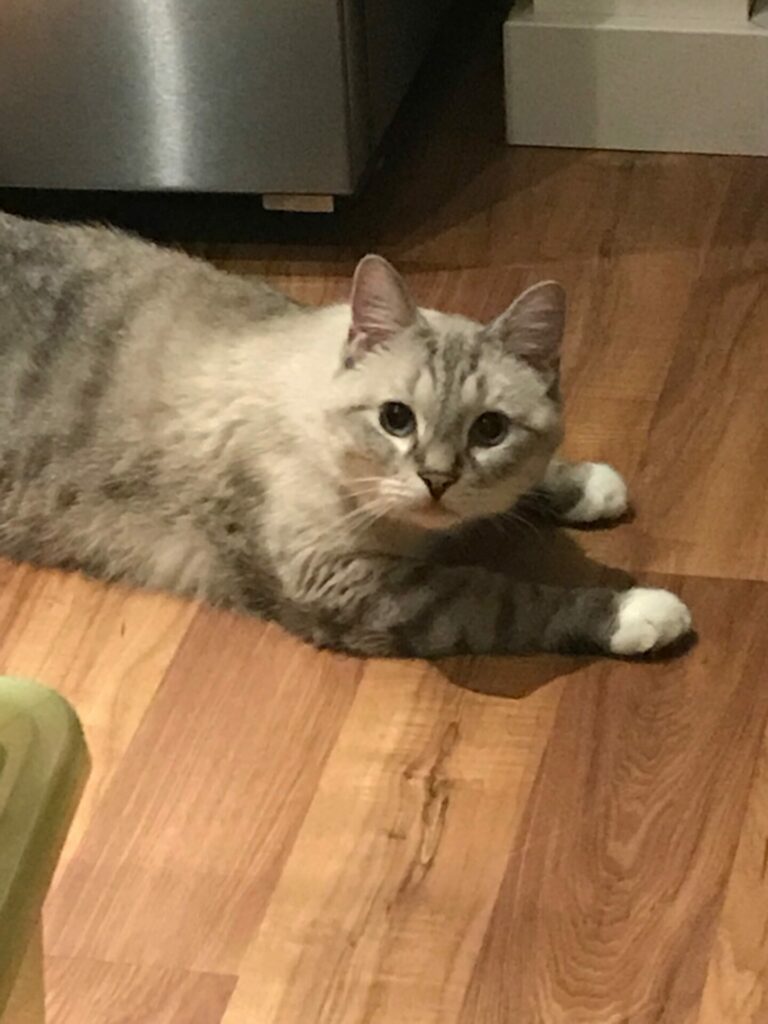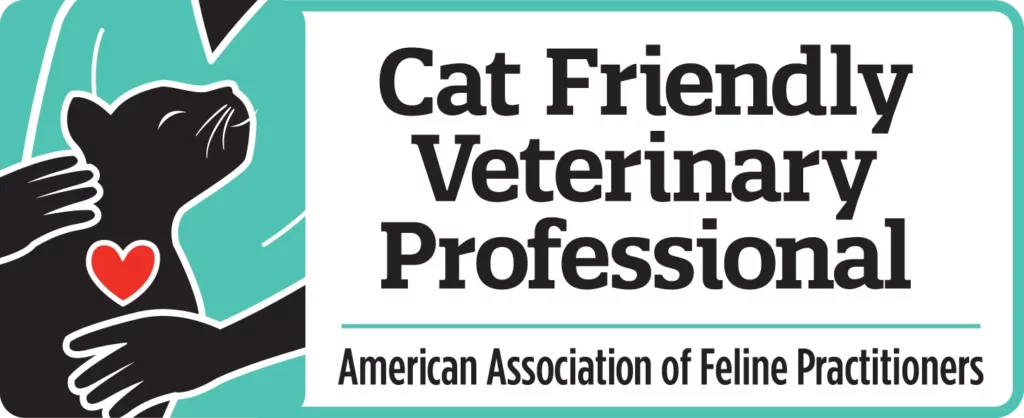Ahhh, kittens. Nature’s most precious natural resource. Are you thinking of getting a kitten either for yourself or to keep another cat company? It’s a big decision to make, especially as introducing cats can be quite a challenge. Let’s go over a few things you’ll want to carefully think about when deciding if you should get a kitten if you have an adult cat (or a senior cat) at home.
Differences Between Kittens And Adult Cats
Much like how different adult humans and children can be, adult cats and kittens can have very different behaviors. While some people think cats are easy pets compared to dogs and thus kittens should be easier to take care of than a puppy, I get a lot of clients who are thrown off by how much work their kittens can be. Similarly, as someone who went from an amazing senior cat to two very rambunctious younger cats, you may be thrown off by what caring for a kitten can be like compared to an older cat.
Cats are considered kittens up until 1 year of age, but they don’t reach social maturity until they’re a bit older. The age of social maturity is important as prior to that, cats are still learning how to interact with other cats. Think back to when you were a teenager and all the (now embarrassing) choices you likely made because you didn’t know how to navigate the world yet. Younger cats go through a similar phase.
When cats are kittens, they tend to have a lot more energy. Kittens will want to play more than adult cats (especially with solo play toys, but also with other cats) and they often can keep going and going. Kittens may not fully understand signals coming from adult cats that they don’t want to keep playing and continue to try to play. The adult cat may learn that the only way to get them to stop is to get more aggressive. Your adult cat will end up very stressed when the kitten is around and we know that stress isn’t good for cats’ health.
Senior Cat Considerations
If your cat is 11 years or older, they are considered a senior cat. Senior cats are delightful companions, but they also tend to have a little less energy than their younger counterparts. While playing with a senior cat is absolutely a good idea, they may prefer shorter bouts of play. They may prefer napping in the sun in a cozy heated cat bed rather than running around. Senior cats tend to need more sleep compared to kittens as well so you will likely have one cat that wants to run around and play while the other one wants to lounge on their favorite cat tower.
While younger cats absolutely can have medical problems, older cats are more likely to develop health concerns as they age. Medical conditions and pain can affect behavior so your older cat may be a bit crankier toward the kitten not because they’re being a jerk, but because they may not feel great. Making sure you work with your veterinarian to keep your older cat comfortable is the best way to mitigate this, but there may only be so much you can do.
Can Kittens And Adult Cats Get Along?
Think about how you feel about people younger than you now. It doesn’t necessarily have to be kids or teenagers but think of the things that folks who don’t have the life experiences and wisdom you have do that you find annoying. You probably don’t want to constantly have to teach the youths lessons about basic manners.
Chances are you have children or teenagers in your life who you do have a good relationship with and who don’t drive you Gwen Stefani level B-A-N-A-N-A-S. They may be more mature, have a good personality match with you, or it may be that you get to return them to their human parents at the end of the day.
The point of both of these scenarios is that there is some variability in how well you get along with younger humans and you may not want to be around all of them all the time. Even if you like kids, you may not have the energy to keep up with a 7-year-old who wants you to play constantly.
That’s how your adult cat feels about the kitten you just brought home.
There absolutely are heartwarming stories of kittens that a senior cat will show the ways of being a cat, but that isn’t always how it works out. Oftentimes, senior cats would rather enjoy their golden years resting somewhere soft and the kitten wants to play constantly. If they do get along, you need to make sure there’s a good match between the cats. If you don’t, you will either have very miserable cats or need to rehome the kitten.
Finding A Good Match
If you do decide to get a kitten if you have an adult cat, you will want to make sure you meet the kitten before bringing them home. You’ll want to carefully compare the kitten’s behavior to that of your resident cat. While you may not be able to observe all behaviors, you should ask their foster or shelter staff:
- How well does the kitten get along with other cats?
- Has the kitten been around other cats the same age as your resident cat? How did they get along?
- How playful and energetic is the kitten?
- What were the first few weeks of the kitten’s life like? Were they around other cats?
- Have they had any negative experiences with other cats?
You don’t want to rely on the old folk wisdom that the cats will just figure things out on their own or that they’ll fight it out. We now realize that this isn’t actually how cat relationships work and this is really, really bad advice. You want to prevent cats from fighting in the first place.
One other important tip: make sure you check yourself and your own emotions. Kittens are cute and it can be easy to fall in love with them. Heck, if I had the unlimited space and resources I’d need to adopt all the kittens I quickly became emotionally invested in, I would have a lot more cats! When assessing how compatible the resident cat and a possible new kitten are, don’t let your desire for a particular kitten (or a kitten in general) cloud your judgment. Really ask yourself if you want the kitten and the resident cat to get along or if you actually think they will get along.
Alternatives To Getting A Kitten If You Have An Adult Cat
If you’ve decided by now that you don’t think you should get a kitten if you have an adult cat or are still on the fence, there clearly was some sort of need or perceived need for you or your cat you were trying to meet. That doesn’t mean you should just ignore that need and it doesn’t mean there aren’t alternatives to heading to your local rescue and bringing home the first kitten that meows at you.

Start by directly identifying the reason behind wanting a kitten. Once you do that, you can find a solution to address the reason. Let’s look at a few possible options.
Spend More Time With Your Resident Cat
If you think your resident cat is bored or would like a friend, the solution isn’t necessarily getting another cat. You probably want to start with the less extreme step of trying to identify ways you could address the boredom. Try using different toys that they may like better than the ones you’ve offered (if your cat hasn’t tried the Cat Dancer you absolutely need to order one right now) and increasing playtime with your cat. Use food puzzles or other enrichment activities to keep them stimulated. Consider clicker training to get your cat’s mind going.
If your cat seems lonely or sad after another cat dies, the solution may be to spend more time with your cat or give them time to grieve. They may not necessarily want another cat as the cat you lost was special and can never be replaced. Instead, they may want the comfort of a beloved human. Regardless of whether you’re missing a cat who passed or not, spending more time with your resident cat may help fulfill your need to connect with a cat and you may not feel like you need a new cat.
Volunteer At A Shelter Or Rescue
Shelters and rescues always need volunteers to help care for the cats. By volunteering at one, you’ll get to spend time with a variety of cats and see their personalities. Maybe one day one that is the perfect match for your resident cat comes through. You’ll have given yourself enough time to really think about it and won’t be rushing a decision. Plus, you can spend time with the cat to get to know them. This also gives you a chance to fulfill your need for more cat time without the full commitment of adopting a cat.
Foster A Cat
Fostering a cat is a great option as it directly benefits you and the cat. You get to do a trial run of seeing how well your cats and the foster cat get along without a long-term obligation (just make sure you set the foster cat up for success by bringing them into your home properly and introducing them to your cats and dogs correctly in case they end up being a foster win). If the foster cat doesn’t fit in with your current clowder, they’ll eventually get adopted and won’t be an issue. The cat benefits because they get a safe, loving home while they wait for their family to find them.
Another bonus benefit: If the first cat doesn’t work, you can foster again with a cat that is a different age or has a different personality. If you repeatedly see that your resident cat doesn’t get along with the new cats, you may be introducing them wrong, not have enough vertical space or other resources for multiple cats, or they may be a cat who doesn’t get along with other cats. Yes, that includes if they previously got along with another cat. Much like how you don’t like every person on the planet, your cat doesn’t like every other cat. Cats are territorial and adding a new cat may end up creating stress.
Adopt An Adult Cat
I know kittens are fun and cute, but your adult cat may prefer another adult cat to a kitten similar to how you likely prefer the company of someone close to your age. There are plenty of adult cats out there who need homes and you’d be giving a cat who may be otherwise overlooked a place to live. Plus, adult cats have a set personality. You know how they will behave and their personality is likely not going to change as much as a kitten’s could.
I know there are a lot of concerns about adopting adult or senior cats as you won’t get as much time with them. Losing a cat can be challenging, but as someone who adopted the cat that changed my life when he was 8, let me tell you that it was the best decision I ever made. I had just over five very special years with Zoloft and I will continue to talk about him until we get to rest together. I have absolutely zero regrets about adopting an older cat.

Set Up A Consultation
Shameless plug for myself: if you want a cat behavior expert’s opinion on if getting another cat is a good idea, set up a session with me. A shorter Zoomies session can work if you just want help deciding on what to do and not any other behavior advice. I promise I will be honest with you if I think it’s a poor choice.
Should You Get A Kitten If You Have An Adult Cat?
There are a lot of factors to consider before you get a kitten when you have an adult cat at home. This is especially true if you have a senior cat as their behavior tends to be very different than kittens. It wouldn’t be possible for me to give you a definitive answer as, like many things in cat behavior, it really depends on the context and the individual cats and humans involved.
Generally, my advice is to strongly to not get a kitten if you have an adult cat and I very strongly suggest you don’t get a kitten if you have a senior cat. I see a lot of very well-intentioned folks who want a friend for their cat and both cats end up miserable. At best, the cats may tolerate each other, but they may end up fluffy balls of stress. If you’ve had kittens and older cats that get along well, great! I’m genuinely very happy for you as it’s not an easy thing to make work. You’re probably better off not going for the young whippersnapper with your snuggly senior.










